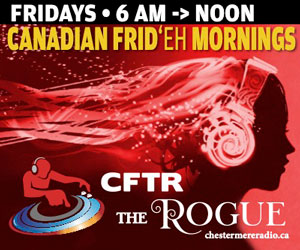Your intrepid liquor reporter has been sampling many a wee dram of whisky, whiskey, hooch, white lightning, moonshine, Scotch, Rye, Bourbon, and pretty much every grain spirit imaginable.
It all started with the surprise honour of a Canadian whisky being awarded the prestigious 2016 World Whisky of the Year award, which prompted your humble narrator to host a taste-off from his private stash against a variety of other sprits.
Unsurprisingly, the self-selected guest list of unrepentant whisky snobs leaned heavily towards the Scottish single malts, even on blind tastings.
It quickly emerged that the most favoured spirits were single malt Scotch whiskies from Islay, a small island in the Inner Hebrides off the west coast of Scotland.
Islay (pronounced eye-la) is a rocky and windswept outcropping that is home to more sheep than people, but punches above its weight in the world of whisky, boasting 8 whisky distilleries on an island of only 3200 people.
Much of the island is a soggy peat bog, so it should not be surprising that the enterprising distillers would dry and roast their barley malts over peat fires, which imparts the distinctive peat aromas that are variously described as smoky, medicinal, and even as reminiscent of drinking diesel fuel by those who do not enjoy peated whiskies.
Perhaps the most eccentric of the Islay distillers is Bruichladdich (pronounced brick-lad-ee), who mix centuries of tradition with ideas often considered brash and rebellious by the more conservative distillers.
In the interests of full disclosure, your humble narrator must confess that Bruichladdich was a stepping-stone to whisky snobbery in the days of my callow youth, when I shook off the shackles of drinking tasteless macrobrews and insipid spirits.
Yes, gentle reader, it was two decades ago, when the last millenium was winding towards its end, that your intrepid liquor reporter tasted his first sip of Bruichladdich, which is the day I threw off the trappings of youth and became a man.
Indeed, the mullet was quickly shorn, and the MC Hammer parachute pants were replaced with a natty suit, all thanks to that first sip of Bruichladdich.
Unsurprisingly, Bruichladdich has remained a constant presence in my ever-changing booze menagerie.
Unlike the other peat-monsters that the distilleries of Islay are best known for, Bruichladdich produces a range of styles.
The peat fans flock to the Bruichladdich Port Charlotte series, bearing its distinctive notes of salt, smoke, and peat.
Never one to be outdone, Bruichladdich also produces a series designated as Octomore, which claims to be the most heavily peated whisky in the world. Not for the faint of heart, this is a whisky for those who enjoy doing battle with the peat monster.
Those who prefer a smoother flavour in their single malts will congregate around the bottles of Bruichladdich Scottish Barley Laddie, widely considered to be the least peaty whisky from Islay, and not coincidentally, the long-time favourite of your intrepid liquor reporter. In its distinctive light blue bottle, this will be found wherever whisky is sold in the neighbourhood of $60/bottle.
The distillery was built by a trio of brothers in 1881, and remained family-owned until 1936. Tragically, the distillery was shuttered in 1994, but was reopened by new owners in 2000, and is currently part of a French booze conglomerate named Rémy Cointreau, makers of well known spirits like Rémy Martin and Cointreau.
Modern distilleries are all stainless steel, with precise temperature controls and assorted valves and pumps all driven by complex computer systems. Such modern conveniences are unknown at Bruichladdich, whose technology has remained largely unchanged since the distillery opened in 1881.
Despite the distillery passing through the hands of many owners over the last 135 years, much of the equipment used is largely based in the Victorian era, with the gravity-fed mash tun and stills that are more than a century old, and lovingly tended by hand by the master distiller and his merry band of whisky oompa-loompas.
With an annual production capacity of a mere 1.5 million litres, Bruichladdich will never be as big as the thundering juggernauts of the whisky business like Johnnie Walker, who produced close to 100 million litres last year.
However, what Bruichladdich lacks in volume, they more than make up for in quality, which is why Bruichladdich will continue to grace the limited shelf space in your humble narrator’s booze cabinet. Try a wee dram yourself to find out why!





